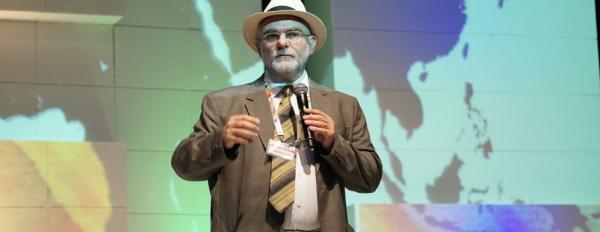
:
Oleh Irvina Falah, Kamis, 13 Oktober 2016 | 10:02 WIB - Redaktur: Irvina Falah - 2K
“Facing hidden power in order to change the perspective towards women is more difficult than facing formal structure.”
The quote may refer to poor stigma towards women, as we could find it in many strata of society.
Symposium 5 as the series of event in the World Culture Forum 2016 discussed on “Reconciling State, Community and Cultural Divides”.
Women who head families or commonly called widows often receive negative stigma from the community, not to mention the ‘hidden power’ which includes religious leader, and community leader, as well as system be it in the culture or constitution, place men as the head of family. Therefore, Nani Zulminarni in her speech in Symposium 5 of the World Culture Forum 2016 asserted that in order to provide program that can protect and empower women, there must be a process to change the perspective, attitude, and internalization process in the community.
In that symposium, Nani Zulminarni mentioned several efforts that can be taken to empower family head women: to establishing an association of “women who head families” in order to make them visible; to transform the claim of “widow” and its embedded stigma to “head of family”; empowering women to have their own financial resources; Focusing on grass root women leadership and power link to a larger context of political power to really contribute to political development; Fostering democratic culture; Building collective live hood resources; Establishing community organizer and public services that will change community’s perspective towards women; Establishing community based on institution; and Building collective assets and resources.
Similar view was also shared by Coordinator of the Center for Asia/Pacific/Cultural Studies Chen Kuan-Hsing. In his culture, temple is the hidden power which forms the community and also serves as the center of social life. People needs to revisit their local culture because daily lives, and temple can be the sources of knowledge.
Also on the same occasion, Father of Cultural Movement in Campina, Celio Turino, stated that culture is process of empowerment. “Culture is process of empowerment,” he said.
Celio added that culture was made through space, time, and history. Both Brazil and Indonesia consist of diversified communities. During the colonialism, local people have to build networks in order to strengthen their solidarities that contributed to the resistance. Solidarity is the strongest element in culture.
The last discussant, Shandia Marhaban said that we cannot build culture based on fear. In contrast, culture will exist through dialog, trust, forgiveness and compassion. We should build cultural dialog based on cultural acceptance, reducing stigma and prejudice. “Culture needs to speak more in this world that full of cruel and greedy people,” she concluded. (Rany Anjany/Penni Patmawati)